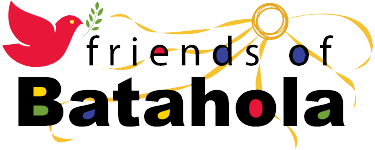

Sharon Juarez is a third-year civil engineering student at the UNI (National Engineering University). “I live with my mom and two sisters. I love my family because we always support one another. My mom has taught us how to work hard and give our all in whatever we do. My mom sells cooked beans and ice from our home to make a living. She also washes and irons laundry. We receive child support from my dad because my parents are separated. The scholarship helps me to cover my educational expenses, like my textbooks and transportation to the university. I do voluntary service in the library and story hour for children at the Cultural Center. I have learned tolerance, responsibility, confidence and punctuality. I have the chance to get to know many different people from many different backgrounds. I have been empowered to continue studying and do a graduate degree in hydraulic or structural engineering. I would like to build a house for my family and help provide for my family.”
Access to education is a significant problem in Nicaragua. Although Nicaragua’s public education system is nominally free, students and their families face many costs—including loss of potential income from school-age earners—that put school out of reach. They are also disadvantaged by the lack of access to the basic tools and resources for succeeding in school, including books, tutoring and even a quiet place to study. It is common for 10 or more family members to live crowded in small houses of 2 or 3 rooms, meaning there is little peace or privacy. Parents with little formal schooling or time are unable to help their children with homework. Reading is a habit rarely encouraged at home. Many children drop out of school long before high school.
The Educational Support for Children and Youth program works with children and youth ages 5 to 25 to help them enter and succeed in school, develop a love of reading and learning, discover their creativity and build skills critical for thriving in a quickly modernizing economy. Program activities include a scholarship program, a community library, family accompaniment, and life skills development.
Scholarship Program
In order to break the cycles of poverty and violence, the CCBN supports over 100 students in the public school system with a monthly stipend for their studies. Scholarship recipients enrolled at the grade school, high school and university levels. Scholarships pay for uniforms, transportation, and basic school supplies for one year in a Managua school. To qualify for a scholarship, the students must maintain at least a 8% grade average, demonstrate economic need and spend a between 5 and 10 hours a week at the CCBN either receiving tutoring or carrying out social service projects.
The scholarship program also addresses non-financial barriers to education. Domestic violence and family disintegration are common challenges among Nicaragua’s vulnerable populations, which affect students’ ability to stay in school. Parents of scholarship students are invited to participate in family accompaniment activities, which promote non-violent disciplinary techniques, communication skills, and affectivity. In addition, primary and secondary scholarship students receive a monthly workshop, facilitated by university scholarship students, on important topics including human rights, health, and self-esteem. These spaces strengthen the family unit by promoting sharing among family members and giving each member basic tools to confront common challenges. Additionally, they develop a commitment among students to work to make changes not only in themselves and their families, but in their communities as well.
Get involved with scholarships by sponsoring a student or visiting the CCBN.
The library, built in 1997, houses a collection of over 7,000 textbooks, reference works and national and international literature. It is one of the few libraries in the city where students can directly access and borrow books, and find a quiet, study-oriented environment. Most visitors are high school and grade school students who do not have resources to buy their textbooks and depend on the library to achieve their academic goals. Sixteen students from the CCBN scholarship program staff the library. They fulfill social service hours by working as part of the library team and helping younger kids with homework, research and other library services. These students provide positive role models for their younger peers.
Through the library the CCBN seeks to help other communities by donating books to school and community libraries around Managua. The library is a member of the Public Library System of Nicaragua and promotes the work of New Writers of Nicaragua. The library team also organizes activities to promote reading, creativity and imagination in the children of Batahola. Library volunteers run reading enrichment projects to supplement the quality of education. Weekly Story Hour sessions are held in coordination with the local grade school and for the community at large to help students develop a love of reading and learning through games, arts and crafts, story creation and reading aloud.
Get involved with the library by donating Spanish-language books or sharing in a craft activity.
